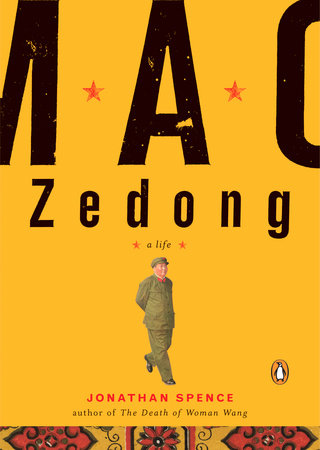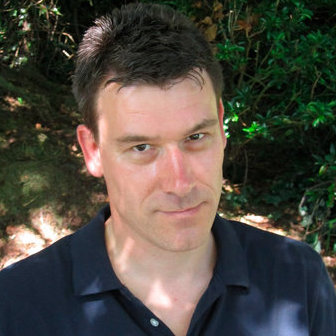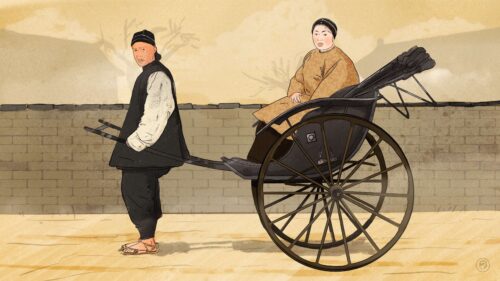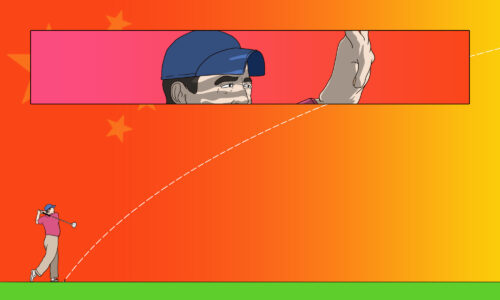This is book No. 15 in Paul French’s Ultimate China Bookshelf.

Blurbs:
“The task of bringing Mao to a large, non-specialist audience is one for which Spence is eminently well-suited. His lucidly written, compellingly narrated explorations of modern Chinese history have attracted a readership unmatched by that of any other academic China specialist. His study of Mao is short…his writing tight, his judgments restrained.”
—The Washington Post
“An elegant account, at once sparse and robust.”
—The Economist
“Fluid and informative despite its brevity.”
—Publishers Weekly
“Spence creates a Mao both wise and foolish, cruel and romantic, pragmatic and naive. Yet Mao’s deepest motivations remain elusive, the origins of his megalomania a mystery. Perhaps Mao had created a self that even he could not control or even truly understand. While much is left out here, this is a fine introduction to the mystery of Mao.”
—Kirkus
About the author:
Jonathan Spence (1936-2021) was perhaps the premier Sinologist of his generation, and certainly one of its best wordsmiths. Originally from England, he was educated at Cambridge and then moved (after a brief stint in the British Army) to Yale to study Chinese civilization. He was unable to study in China due to the Cultural Revolution and instead spent a year with Chinese academics in Australia. Spence then taught the popular undergraduate course on China that eventually became one of his best known books, The Search for Modern China, published shortly after the Tiananmen Square massacre. He subsequently wrote on the Taiping Rebellion, on notable foreigners who engaged with China, the influential The Death of Woman Wang (set in provincial China in the 17th century), The Chan’s Great Continent: China in Western Minds (on the nature of revolution and rebellion in Chinese history), and the biography of Mao discussed here. His scholarship was lauded and awarded in Asia, Europe, and America, making Spence perhaps the most influential China scholar, especially on later generations of those interested in the country. He gave the Reith Lectures for the BBC and the Jefferson Lecture for the Library of Congress while winning prizes and scholarships too numerous to mention. This is his first appearance on the Ultimate China Bookshelf — it will not be his last.
The book in 150 words:
A short bio of a big life at just 188 pages, but Spence, perhaps the premier Sinologist of his generation, manages to capture the essence of the young Mao, through the formative years of the early Communist Party and into his leadership and eventual total domination of China. Mao is often presented as a monolith, but Spence’s talent for drawing out character (seen in his books such as The Death of Woman Wang or the character sketches in To Change China) is used to full, highly targeted effect in this biography. We also see a young man reacting almost instinctually to the tumult of modern China, reacting to warlordism, the rise of the Nationalists, and then his own party’s success. As Mao increasingly becomes the dictator we usually see him as, so we better understand his motivations thanks to Spence’s account of his ideological trajectory over five decades.
Your free takeaways:
Mao’s beginnings were commonplace, his education episodic, his talents unexceptional: yet he possessed a relentless energy and a ruthless self-confidence that led him to become one of the world’s most powerful rulers.
Those who endured Mao’s worst abuses execrate his memory. Those who benefited from his policies and his dreams sometimes still revere him, or at least remember the forces he generated with a kind of astonished awe. In the end it was really only physical decay and weakness that brought him down, even though his chosen policies had been shown to be full of inconsistencies and what Mao himself termed “contradictions.
The young man who had struggled so often against the autocratic nature of his father, who hated and despised the shackles of bourgeois marriage and had found joy in a free-love relationship, who detested schools and would never be as student again, and who always sought freedom of spirit and the chance to grow and change had willingly accepted, at the age of twenty-eight, a much greater degree of disciplined control from the communist Party than any he had encountered in his life before.
Both the Hundred Flowers movement and the launching of the Great Leap Forward show Mao more and more divorced from any true reality check. His scientific speculations, philosophical musings, and economic projections – when unmediated and unpolished by his own private secretaries and the outlying teams of party ideologues — seem in the raw to be extremely simple, if not simpleminded. And he himself seemed to care less and less for the consequences that might spring from his own erratic utterances.
Why this book should be on your China bookshelf:
It was of course inevitable that we would have a biography of Mao on the Ultimate China Bookshelf. It was also naturally inevitable that a Jonathan Spence title would be included on any half-decent China shelf — and this will most probably not be the last Spence title to be featured. There’s no getting away from it: Mao looms large over modern Chinese history, a dark and malicious shadow to many outside China though still a hero and savior of the nation to many Chinese. So how to tackle his life and legacy is a big question.
There are, of course, many Mao biographies out there — hagiographies, tributes, and admiring tomes alongside castigating takedowns, gossipy bios, and utter trashings. Many big-name heavyweights have taken on the Olympian task of the Mao bio — Philip Short, Jung Chang, and Jon Halliday, Ross Terrill, Delia Davin, Lee Faigon, Michael Lynch, Rebecca E Karl, Frank Dikotter, among them. All have something to offer; all have their champions and their detractors.
Still, Spence’s Mao bio is the one we’re plumping for. As Professor Jeffrey Wasserstrom has written, “What I like about Spence’s biography, which is very short, is that it presents us with a very human Mao, both in his accomplishments and in the tragedies that he foisted on the country…He’s an incredible figure, in almost any way you think about it, to have led this transformative revolution that turned China upside down and inside out, and then go on to lead the country for the first 27 years after the establishment of the People’s Republic of China. So he was involved in dramatic events, he was a larger-than-life figure, and also there are distinct stages in his life in which he operates in different ways.”
There are any number of reasons Spence offers to give us a more rounded portrait of Mao. For instance, he shows the early range of Mao’s interests, from agriculture to vernacular literature. Spence also discusses Mao’s early influences, including those from Chinese teachers and intellectuals who had been to Japan and returned with new ideas. Mao encountered many Japanese-educated or experienced intellectuals, teachers, journalists, and librarians in his early years, and these influences are also instructive of what we see in other books on our shelf of this once-thriving back-and-forth of cultural and political influence and debate (for instance, Book No. 10, Riichi Yokomitsu). Spence also discusses what Mao made of the May 4th Movement and why he didn’t opt to go to France as a work-study student, as did Dèng Xiǎopíng 邓小平 and many other early leaders of the Chinese Communist Party.
Indeed, the young Mao that Spence presents is an appealing character. Almost, dare we say it, a proponent of a Marxist-inflected hippyish sort of idea of rural intellectual communes, an eager investor in a cooperative bookshop, and perhaps most interesting, a vocal supporter of Hunanese independence (at least until 1923 when CCP policy meant he had to disavow this separatist aim and reject any idea of China as a federation of provinces). Here is Mao in Changsha, verbally sparring and disagreeing with no less a figure than Bertrand Russell on the inevitability of revolution (Russell said it was inevitable; Mao denied it!), when the great British intellectual visited Mao’s hometown.
If there is a weakness, then it is that between the mid-1920s and mid-1930s, Spence has little to say on Mao’s theoretical development over the tumultuous course of the Jiangxi Soviet, the Long March, the final arrival at Yan’an, and the 1935 kidnapping of Chiang Kai-shek (蔣介石 Jiǎng Jièshí) — all moments we know Mao had strong opinions on. Knowing more of Mao’s theorizing in this era of cooperation with the Nationalists would be interesting. Also, there is little of the relationship between Mao and Zhōu Ēnlái 周恩来, but then perhaps that seemingly symbiotic relationship has been oversold in recent decades? A human, subtly clever, cosmopolitan face sitting next to that of an insular, apparent monster who wielded power as a bludgeon and came to embody Chinese-communist Philistinism. In Spence’s telling, Zhou is a secondary character to the PLA officer and (for a time) Mao’s chosen successor Lín Biāo 林彪, the one-time ideology tsar Liú Shǎoqí 刘少奇, ruthless security boss Kāng Shēng 康生, and the great champion of that movable feast called “Maoism,” Chén Bódá 陈伯达.
Still, Spence’s biography is highly readable as he moves swiftly through the post-1949 years. The Hundred Flowers campaign transforming into the suppression of “poisonous weeds” who actually offered a constructive thought; the wilful blindness to the awful condition of the Great Leap Forward; the vanity project that was the Cultural Revolution. And then the sad, inevitable, and fairly long-drawn-out decline and ultimate death. Spence exits the stage when Mao passes, leaving the question of legacy to other writers. This is a biography and Spence clearly believes in the linear biography that starts with a birth and ends with a death, and his Mao is perhaps all the more poignant for that authorial discipline.
Next time:
Mao, Maoism, Maoist thought, Maoist sloganeering, and Mao’s place in history will continue to be debated, argued, and written about. No avoiding that and probably little middle ground between the opposing national hero and murderous dictator opinions. But it still behoves us to read the thoughts of the man himself as we judge him. And so, next time we go to perhaps the littlest book on the Ultimate China Bookshelf, but one that has had massive and recurrent effect on China and opinions about China ever since.
Check out the other titles on Paul French’s Ultimate China Bookshelf.







